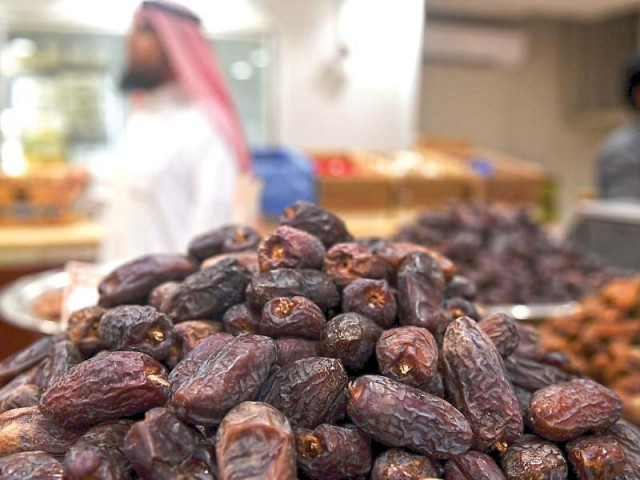Pakistan turns to Sri Lanka for dry date exports
Targets new market after India slapped heavy duties on dates import

It is expected that the visit of date importers from Sri Lanka will greatly help in increasing exports of Pakistani dates. PHOTO: FILE
A three-member delegation of date importers from Sri Lanka arrived in Sukkur on an invitation of the Trade Development Authority of Pakistan (TDAP).
“After imposition of massive duties by the Indian government on Pakistan’s exports, wherein dry date exports suffered badly, TDAP held consultative sessions with date exporters in order to address their concerns,” said a statement released by TDAP.
Pakistan’s date production falls due to lack of innovation
During the deliberations, it was noted that Pakistan needed to explore an alternative market for the export of its dry dates. As a result, TDAP through Pakistan’s mission in Sri Lanka arranged the visit of date importers to Pakistan from August 4 to 7.
The delegation comprises representatives of three major Sri Lankan date importing companies.
The delegation will visit the Sukkur Chamber of Commerce and Industry and Agha Qadirdad Date Market, Sukkur, where business-to-business (B2B) meetings with their counterparts would be arranged.
Furthermore, the delegation will visit the Khairpur Chamber of Commerce and Industry and dates market in Khairpur for B2B meetings with exporters and later will visit date factories in the district.
“It is expected that the visit of date importers from Sri Lanka will greatly help in increasing exports of Pakistani dates,” according to the statement.
“Our dry dates are of lowest quality from the market perspective,” remarked Sindh Abadgar Board Senior Vice President Mahmood Nawaz Shah. “We did not develop our product, due to which we don’t have much choice in terms of market.”
Dyed, dried and supplied: how a date gets from a tree to your plate
Since last year, Pakistan Horticulture Development and Export Company (PHDEC) and TDAP have made extensive efforts to find new markets for the dry fruit. However, they could not find any as “we have one of the oldest varieties and nobody demands it.” Dry dates only have a few markets, with India being the biggest one, followed by Bangladesh and Sri Lanka.
In India, dry dates are used for religious rituals. The consumption is so huge that, despite growing the product itself, Delhi has to import it. Thus, Sri Lanka may not be able to replace India as Pakistan exported 80% of dates to Delhi, said Shah.
Pakistan, the fifth largest producer of dates in the world, is on a downward trajectory in terms of production. In 1999, it produced 540,000 tonnes of dates annually. Instead of growing, this number went down to 467,000 tonnes in 2016, according to data collected by the Sindh Enterprise Development Fund (SEDF).
Prices of dates at the farmers level, where middlemen buy in bulk, have decreased up to 40% and stocks have accumulated in the wake of escalation of tensions between Pakistan and India.
Pakistan produces dry dates in surplus, which is why it has to export. However, the quality of dates is so low that its own population does not consume it and the country has to import dates, especially for Ramazan.
“Now, we need to improve our ways of harvesting and post-harvesting so that we could use the dates as fresh and not dry,” suggested the Sindh Abadgar Board SVP. “We also need to introduce new varieties.” He said “there are new varieties in the world; we need to work on long-term tissue culture, so that we can replace the existing one. We also need to work on date processing so that we could improve harvesting, grading, packing, etc as well as improve our exports.”
Published in The Express Tribune, August 6th, 2019.
Like Business on Facebook, follow @TribuneBiz on Twitter to stay informed and join in the conversation.



















COMMENTS
Comments are moderated and generally will be posted if they are on-topic and not abusive.
For more information, please see our Comments FAQ